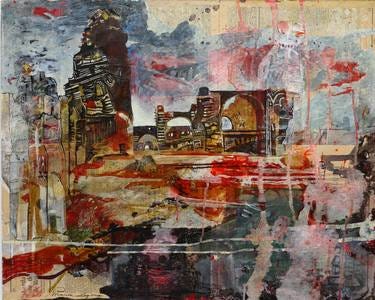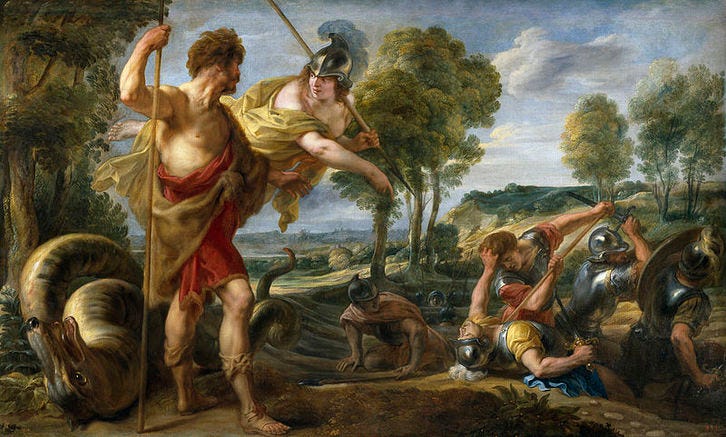Issue III: Governance
New excellent essays on the coordination of human affairs in the past and future
How should groups of people be governed?
This is a deep question, one that societies and organizations have had to grapple with since the dawn of time, and one that we will likely keep asking ourselves for the entire future of the human species. It is therefore a prime topic for a magazine like The Classical Futurist, which publishes, every month, essays about the future from the lens of classical antiquity.
In Issue III, released today, our three main essays examine the theme of governance from different angles. Sachin Maini writes about a major modern example of building new institutions, the founding of the United States, and how classical antiquity inspired that event. Caleb Ontiveros takes the Roman idea of tiered citizenship and wonders how it could inspire us to deal with immigration issues today. Étienne Fortier-Dubois draws from the political philosophy of Aristotle to muse about the future of governance in the context of crypto-based decentralized organizations.
We also each provide a reading suggestion from or about antiquity.
If you haven’t subscribed already, you can do so right here. You will receive exactly one email per month with the contents of the current issue.
Issue III, November 2021: Contents
The Founders of the United States Were Classical Futurists
When the Americans broke away from Great Britain, they had to design new institutions that would ensure the prosperity of their young nation. It worked: the political system of the United States is still functional after more than 200 years, and the country became the wealthiest and most powerful on Earth. But why did it work? Because the founders drew inspiration from Greek and Roman writers, argues Sachin Maini, showing the influence of classical culture on several of the early American statesmen.
Ancient Models of Citizenship and Migration
Immigration is a common political issue in the Western world. How many immigrants should we accept? How should we integrate them to society? These questions are deeply interlinked with the idea of citizenship, whose roots lie in the ancient world. Caleb Ontiveros suggests that models like different tiers of citizenship, which the Romans employed, can help us resolve our immigration problems.
AristotleDAO
The world of cryptocurrencies, or web3, is undergoing a boom as a large number of DAOs, or decentralized autonomous organizations, are being founded. DAOs are intriguing because the blockchain technology they are based on offers new solutions to the problems of governing an organization. In this essay, Étienne Fortier-Dubois compares DAOs to the forms of government described by Aristotle, and urges crypto people to think about political philosophy if they are to build decentralized analogues to city-states.
Recommended Reading
Building upon last month’s short essays on literature from or about antiquity that inspires us, we offer three new reading suggestions.
If you like The Classical Futurist, please don’t hesitate to give us a shoutout.





